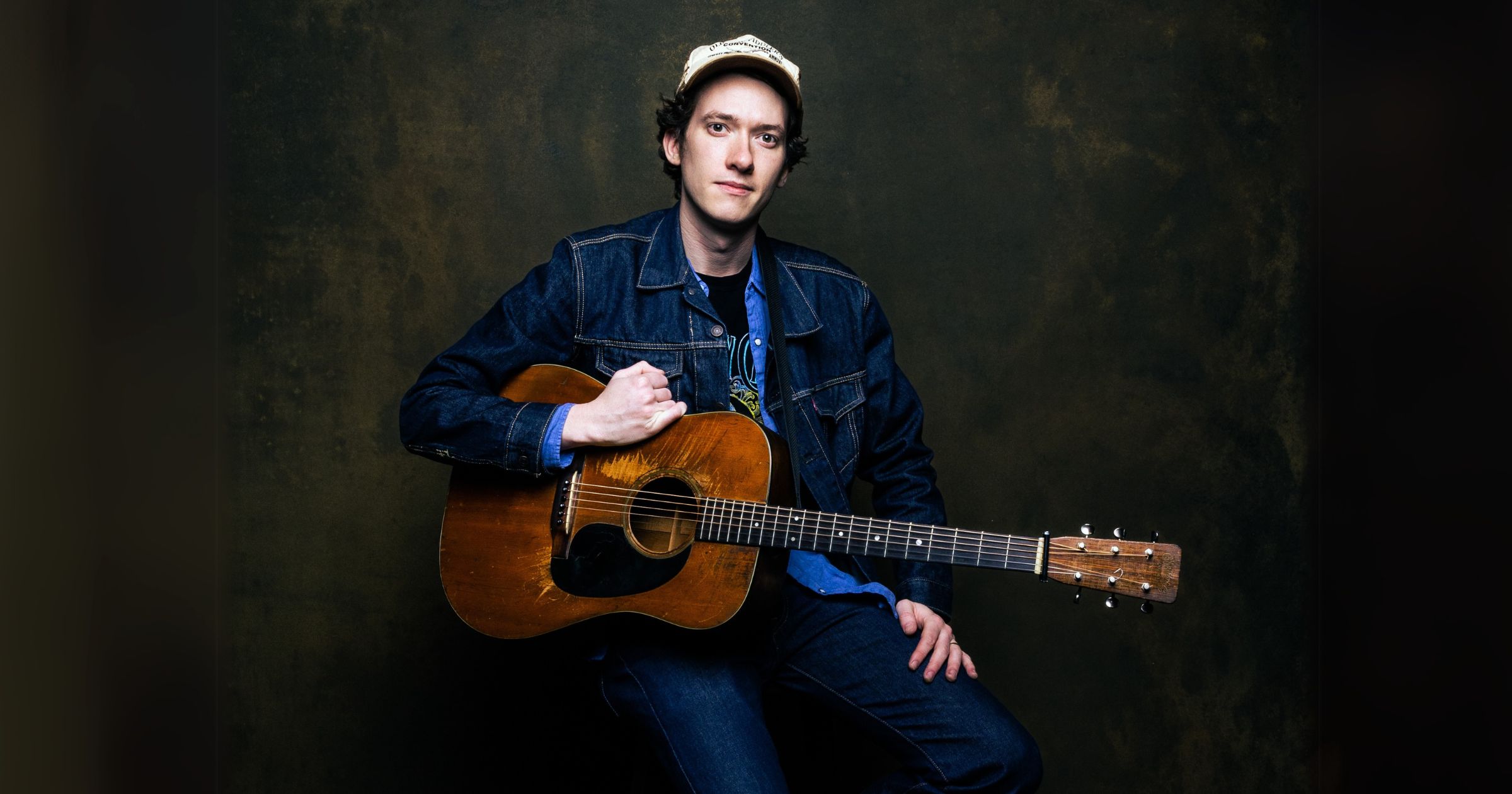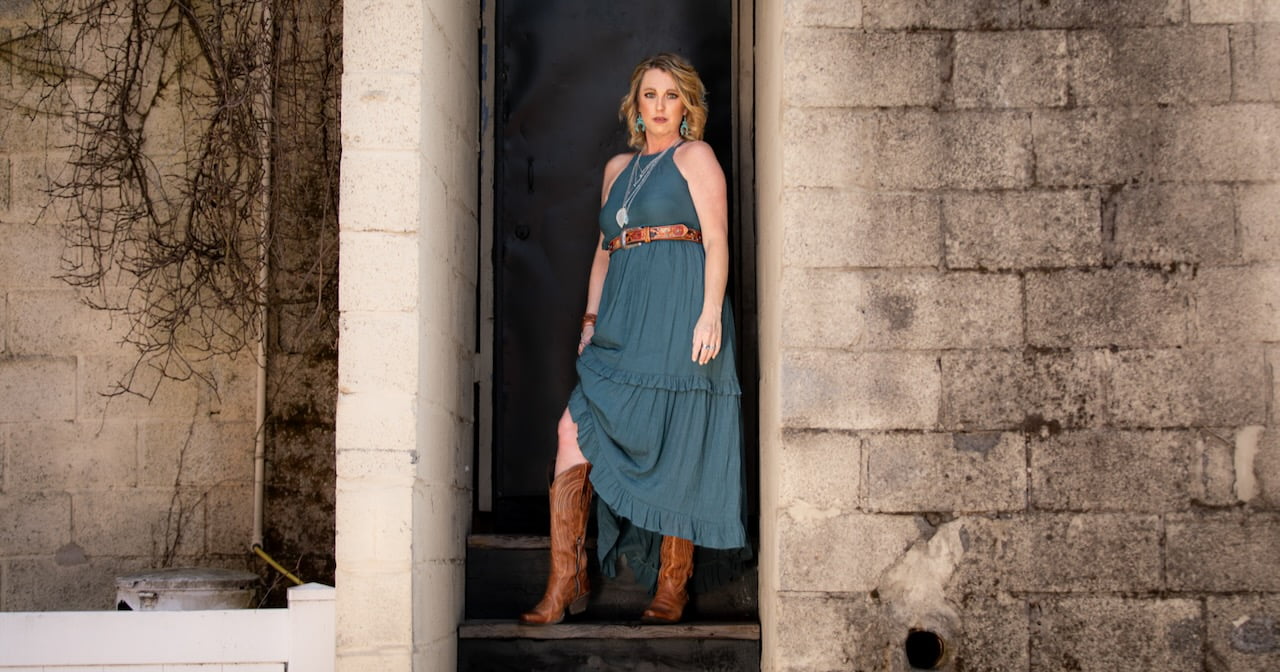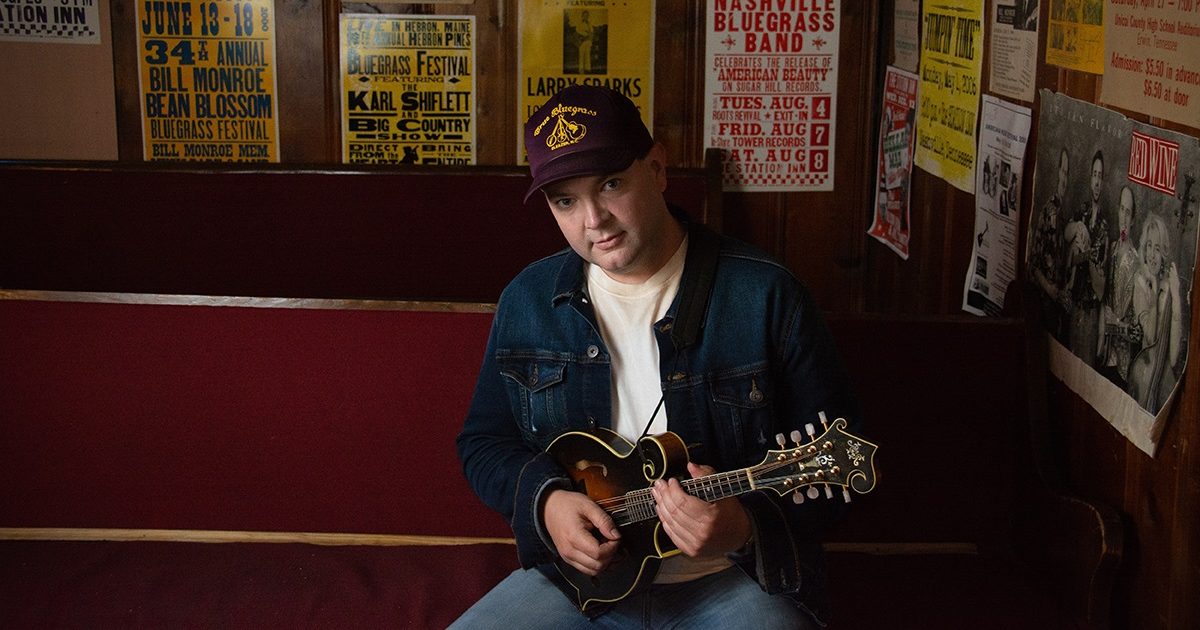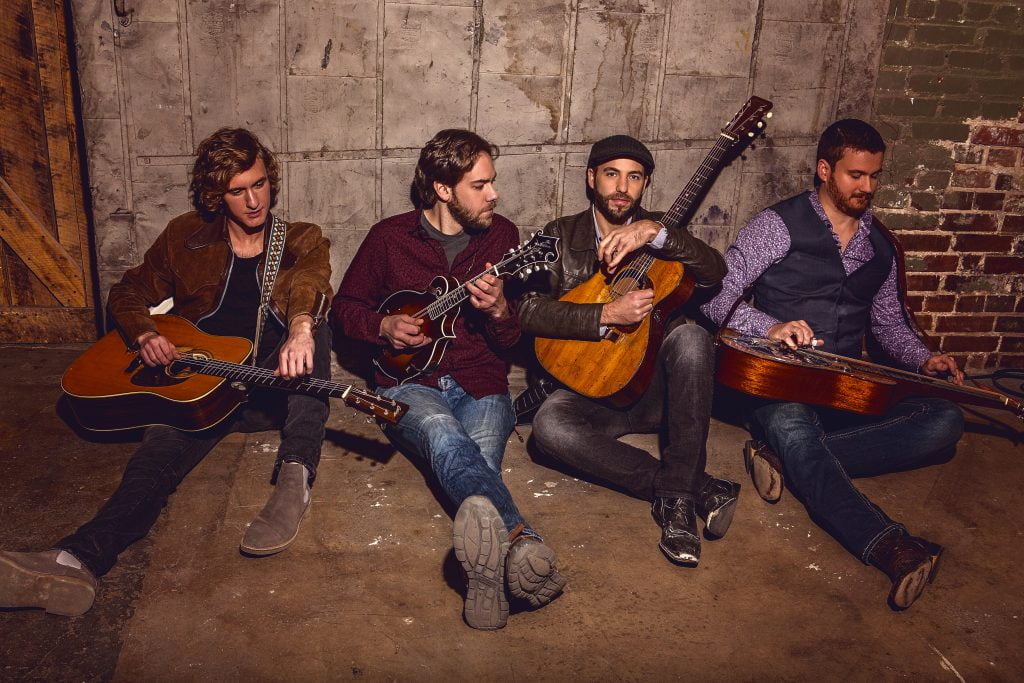After a three-year run with revered bluegrass troupe Old Crow Medicine Show, Mason Via is breaking off on his own and returning to his roots on his new self-titled, 10-song album.
Out April 25 via Mountain Fever Records, the record finds Via toeing the line between the worlds of old-time and progressive bluegrass with hints of jamgrass mixed in, no doubt an homage to his father, revered picker David Via. Via initially presented nearly 100 songs for consideration to producer Aaron Ramsey – among them a bevy of solo cuts, along with co-writes from the likes of Boy Named Banjo’s Barton Davies, and Christian Ward, the newly minted fiddler for the Del McCoury Band and the Travelin’ McCourys – before whittling the material down to a fraction of that to actually record.
The resulting songs serve as a continuation of what fans heard from Via with Old Crow, particularly the band’s 2023 album Jubilee, where he wrote or co-wrote seven of the 12 tracks – including “Allegheny Lullaby,” “I Want It Now,” and “Belle Meade Cockfight.” According to Via, many of these new songs were even written with Old Crow in mind before he made the decision to step away and release them under his own name.
“This is an album full of stuff that, for the most part, I wanted to do while I was in Old Crow but never got around to,” Via tells BGS. “That being said, I was excited to get to put them on my album because these tunes are a deep dive into who I am as a songwriter from my time spent living in Nashville.”
Ahead of the album’s release and amid a run of shows through the Midwest and Southeast with Logan Ledger, Via spoke with BGS by phone about his path to Old Crow Medicine show, how a Virginia festival changed his entire career trajectory, how he came to love co-writing after moving to Nashville, and more.
You were joined by a trio of bluegrass royalty – Rhonda Vincent, Junior Sisk, and Ronnie Bowman – on the songs “Oh Lordy Me” and “Mountain Lullaby.” What did it mean to you having them join you on those songs?
Mason Via: It was very validating, because I’ve always felt that I circled around bluegrass and navigated on the outskirts or fringe of it, so to have those torchbearers of the genre sign off on this meant a lot. I didn’t know Rhonda as well, but Junior and Ronnie are old family friends. I hate when artists have other people as features, but they’re not really featured – it defeats the purpose of it all. Because of that I really wanted to go out of the way to showcase everyone. For instance, on “Oh Lordy Me” we all take turns singing lead on verses before coming together for the chorus [with Bowman and Sisk], whereas “Mountain Lullaby” is trio harmonies the whole way through [with Bowman and Vincent].
You mentioned Junior and Ronnie being old family friends. Is that a connection through your father, who was a bluegrass picker himself?
It is, they all go way back. They used to have big pickin’ parties every Tuesday at dad’s house in Dry Pond, Virginia, that they called The Blue Room. They’d pick all day and night, with the last person left awake taking home the coveted Bluegrass Buddy Belt, a WWE-style belt, for bragging rights.
In addition to growing up around them, Ronnie also cut a couple of my dad’s songs and Junior was often around Galax and the fiddlers conventions I grew up going to, which the song “Oh Lordy Me” is sort of an homage to.
Speaking of home, you returned to Floyd, Virginia, to record this new album. After spending time in Nashville in recent years, what made you want to go back there?
Floyd is about an hour from where I grew up. I remember going to the Floyd Country Store when I was younger and playing up there and it being like a little mountain getaway, which is exactly what going back to the area to record felt like. It was a bit more secluded than when I recorded in Nashville and elsewhere previously, which forced all of us – myself, producer Aaron Ramsey and all the players – to be in it all the way from start to finish.
However, people will soon be able to hear those different approaches when I release alternate versions of a few of the songs on this album that I recorded in Nashville before this bluegrass record deal happened. Two of them, “Falling” and “Melting the Sun,” are psychedelic indie rock ‘n’ roll – think War On Drugs meets the Foo Fighters – whereas “Hey Don’t Go” is one I released alongside my departure from Old Crow with pedal steel, drums, keys, and electric guitar. We also recorded a version of “Wide Open” with similar arrangements in the same session that we’ll be releasing soon as well.
Sounds like we have a lot to look forward to!
Sticking on the topic of Floyd, I remember seeing you for the first time at FloydFest in 2019 with your band, Hot Trail Mix, which finished runner-up at the gathering’s On-The-Rise band competition that year. What has that moment – and the festival in general – meant to your music career and trajectory?
I’d just gotten out of college and was working as a substitute teacher at a military academy when the opportunity to perform in the FloydFest competition came about. I grew up going to the festival, so finishing runner-up and getting invited back to play the main stage was a moment where I started to realize I should take this more seriously. Since the next year was 2020 that show never happened, so my next time back at FloydFest was actually in 2021 when I played the main stage on Saturday night with Old Crow.
So the festival played a role in you linking up with Old Crow then. How did that opportunity come about?
Ashby Frank, a great bluegrass musician, suggested me to Donica Elliott, who worked with the band at the time, who then passed my information onto Ketch [Secor]. Eventually I got a call from him asking to come audition, so a couple weeks later I drove out there for a casual jam session where we played a bunch of old-time pickin’ tunes from fiddlers conventions with a couple of Old Crow’s songs sprinkled in. I came back and did the same thing the next day followed by [going to] Ketch’s house the day after to help move some furniture, which led to us writing the song “I Want It Now” [from Old Crow’s 2023 album, Jubilee]. I wound up getting the gig and next thing I know we’re recording an album. Even my first gig with them was the Grand Ole Opry – I was thrown into the fire, but loved every minute of it!
I had a great run with Old Crow, but the big reason for leaving the band was to pursue this album, because unfortunately you can’t do both. It feels a little like starting over, but I couldn’t be happier with where I am now. And who knows, 10 years from now I could be back in the band – the world is very cyclical like that. I saw Chance McCoy is back with them and they’ve been touring with Willie [Watson] again, which got me thinking about how the band is an ever-changing cast. We left on pretty amicable terms, so I think there’s definitely room for potential collaboration or a reunion in the future.
During your three-year run with Old Crow, what’s the biggest piece of music-related advice you learned from them?
I like to tell people that I think of my time with Old Crow as getting a Master’s degree in music. They taught me that you don’t need to play the craziest solo in the world or sing the wildest riff, you just need to be distinctly, uniquely you. I’ve been trying to lean into that more in my new material including this new album, which I think is some of my most personal material yet.
I know one thing you started doing a lot more with Old Crow that’s a regular part of your repertoire now is co-writing. What’s it been like opening yourself up to more of those opportunities lately?
When I first moved to Nashville, I’d never really co-written before, but when you get here you realize really quickly that that’s a huge part of the community there, similar to jamming with your buddies. It’s a great way to connect with friends and something I really enjoy because you don’t always get to do something like that on such a deep level. I’m also a very ADD type of person so I love the aspect of being intentional with your time and what you hope to create within it like that.
One of the people you co-wrote for this record with was Zach John King, who you first met in 2021 during your stint on American Idol. Tell me a little about your partnership with him that led to your songs “Wide Open” and “Fireball.”
We were set up to have a conversation together on camera for the show. That’s how we were first introduced and we’ve since gone on to become buddies long after Idol. When I got the Old Crow gig he reached out and said he was thinking of moving to Nashville and if he could stop by to ask me some questions about my journey and the process of going from American Idol to what I’m doing now. I was a mentor there for a second, but now it’s the other way around since he just signed a deal with Sony Music Nashville [in January]. He’s already got some songs doing well in the pop country world and is really about to take off. Connections like the one with Zach are reminders of just how small the music industry really is.
What do you hope people take away from listening to this collection of songs?
Every song is its own kaleidoscopic spectrum of emotions that I’ve felt in one way or another. I hope you can laugh and cry and dance and feel every emotion the whole way through, which I think is a trademark of a good album or show. Pairing those emotions with the feeling of what it was like for me growing up in the Blue Ridge Mountains with all my influences, from rock and roll to country or the string band music that was always present during my raising, was a special experience and something I hope folks enjoy listening to over and over again.
What has music, specifically the process of bringing this new album to life, taught you about yourself?
I love how [music] takes you places, it makes you feel like an astronaut or something. You get to travel to different worlds, get outside yourself and figure out who you are. Each song is like its own barn quilt that showcases the different patchwork that holds a place in my heart.
Photo Credit: Ashli Linkous



